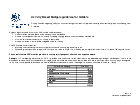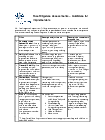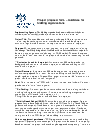Liberia - call for 2021-2022 project proposals
The British Embassy in Monrovia invites proposals for projects to be grant-funded by the Foreign, Commonwealth & Development Office’s International Programme.

Introduction
The International Programme is a technical assistance fund which supports small-scale projects that aim to deliver policy outcomes. Examples of activity funded by the International Programme include communications, training, development of online digital resources, and so on. Successful projects should deliver change in Liberia.
Objectives
Areas of focus could include, but are not limited to:
- eligibility: We will prioritise bids from local NGOs/ civil society organisations but bids which involve working with government bodies may also be approved where there is a strong case. We will also accept bids from international organisations. We welcome proposals for work in all regions of Liberia
- focus areas: Youth, gender equality, human rights, justice, democracy, media freedom, health, climate change/environment and education
- funding period: 1 September 2021 to 15 March 2022. All project activities and expenditure must be completed by the end of the funding period
- application period: Proposals must be submitted via email by 09h00 (Liberia time) on Monday, 12 July 2021. Late bids will not be accepted
Bidding documents and guidance are available below.
Application process
Bidders should fill in the standard or and include a breakdown of project costs in the or , available at the links below, using the guidance provided. We will not consider proposals submitted in other formats. Activity Based Budget costs should be indicative. Costs should be provided in US Dollars, not Liberian Dollars. UK-based organisations may submit budgets in GBP (£ pounds sterling). Organisations cannot use grant funding to generate profit.
The maximum funding amount available is US$30,000 (or GBP equivalent). We welcome bids up to this value. UK funding may be in addition to co-funding by other partners and self-funding contributions; indeed this will be considered a merit. Where appropriate, bidders are encouraged to describe how their project could be further scaled-up if additional funding became available.
Bidders should read the guidance carefully before completing bids. Proposals which do not follow the guidance and do not provide the required information in the standard format/word limit will be rejected. Successful projects should have sustainable outcomes and should clearly identify the change that will be brought about.
They may also build on projects by other organisations, complementing their efforts. All bids should make clear how they will complement existing activities supported by other donors and international partners, and how work in the regions would complement national-level activity.
Successful bidders must be able to receive project funding in GBP or USD in their organisation’s bank account. Cash payments will not be made. 85% of project funds should be spent before end of December 2021.
Administrative costs (office rent, project management and book-keeper rates, utilities, communications, stationery, bank charges, etc.) must not exceed 8% of the total project budget. Project costs are usually reimbursed on basis of actual receipted costs. Requests for partial advance payments will be considered on an exceptional basis, with additional scrutiny required.
The International Programme is not a humanitarian fund and cannot provide e.g. scholarships, food or educational supplies, etc. We are unable to fund:
- academic courses or research
- English language courses
- the purchase of IT or other equipment
Proposals must be submitted by email to [email protected] by 09h00 (Liberia time) on Monday,12 July 2021. Late bids will not be accepted.
In the subject line, please indicate the area you are bidding for and the name of your organisation, formatted as in the following example: “International Programme Bid – EDUCATION – NGO Name”
Selection process
Bidding is competitive and only selected projects will receive funding. The Embassy reserves the right to accept or reject any or all bids without incurring any obligation to inform the affected applicant(s) of the grounds of such acceptance or rejection.
Due to the volume of bids expected we will not be able to provide feedback on unsuccessful bids. We aim to evaluate proposals by early August. Approved projects will commence in September.
Proposals will be evaluated against the following criteria:
- alignment to Embassy priorities – the extent to which the proposed project will promote positive change in priority areas
- quality of project – How well defined the outcome is and how activities and outputs will successfully deliver this change
- value for money – Projects must be cost-effective in how they deliver the desired outcome, making economic, efficient and effective use of funds. We will consider the value of the expected project outcomes, the level of funding requested, how it will be used, and any match-funding contributions by the implementer or other partners
- previous experience – evidence of the project team’s understanding of the issue, evidence of previous successful activities in Liberia or the region, evidence of ability to manage and deliver a successful project, through work done to date in the policy area or in related fields
- gender-sensitive approach – Partners should identify the gender implications of the issue they are addressing, whether it will impact differently on men and women and how this is taken into account in the proposal. The proposals will be assessed by a mixed gender panel
Due diligence of implementers
All selected implementers must undergo a due diligence screening before any funding can be awarded. The Due Diligence Assessment (DDA) process covers 5 pillars:
- Governance and Internal Control
- Ability to Deliver
- Financial Stability
- Downstream Delivery
- Ethics
Selected implementers will be asked to provide documentary evidence that they meet required standards, and undergo an interview to identify risks and assess mitigations. Further information is available below.


